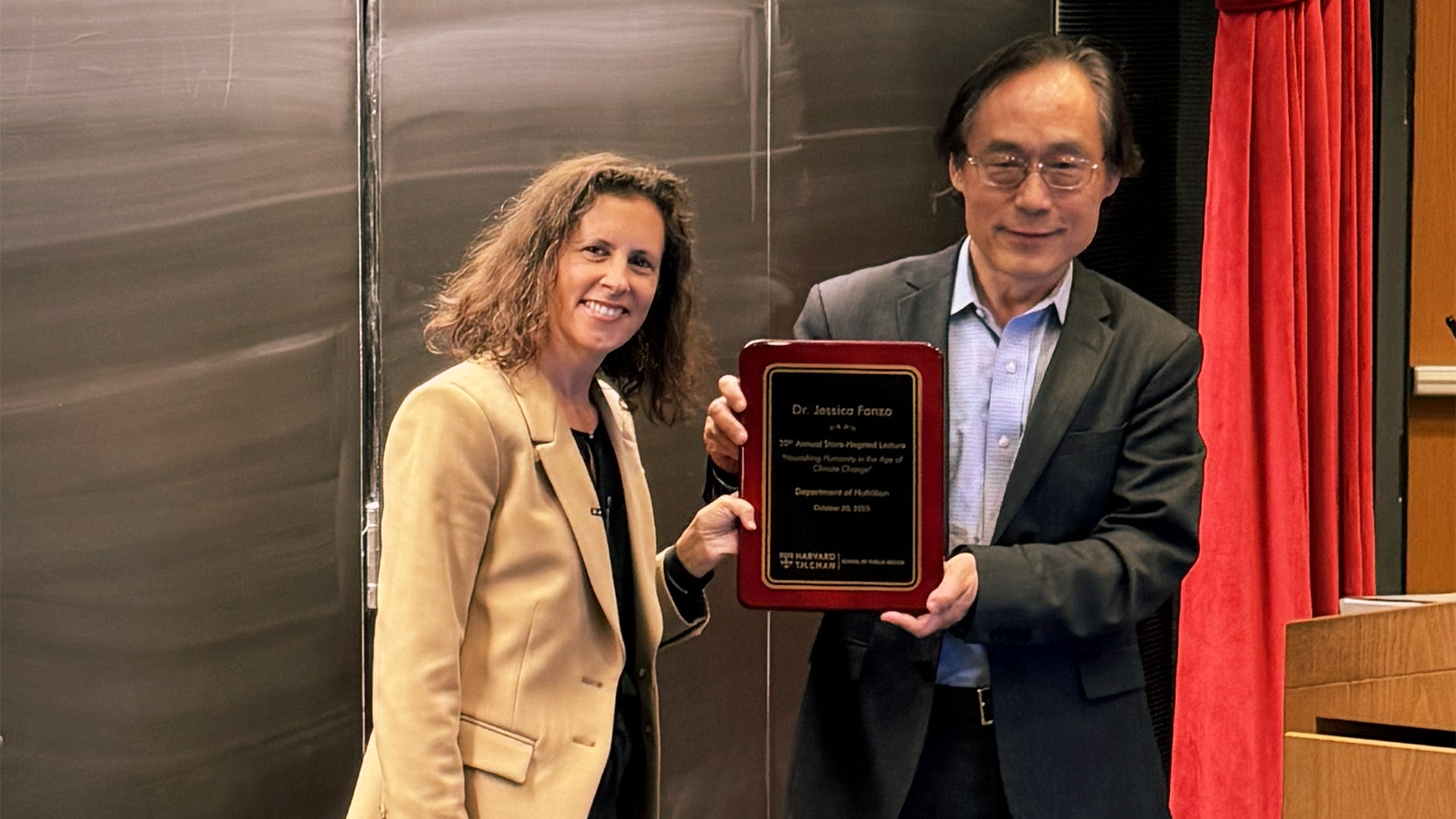Increasing the use of electric cars could improve health outcomes
Replacing gas-powered vehicles with electric vehicles in cities could significantly reduce air pollution–related death and illness, according to John Spengler of Harvard T.H. Chan School of Public Health.
Spengler, Akira Yamaguchi Professor of Environmental Health and Human Habitation, co-authored a recent study showing that expanding the use of electric vehicles in large metropolitan areas could reduce health harms from tailpipe emissions, which contain fine particulate matter (PM2.5) and other harmful compounds. He discussed the findings on the radio show “Living on Earth” on June 11, 2021.
“When you think about urban congestion, and you think about the miles traveled in close proximity to people, let alone the people in the cars themselves on the road, that we get a tremendous exposure over the course of our lives from these nearby sources, roadside emissions, effectively, and so if we make that fleet cleaner, we all benefit from healthier air,” Spengler said.
Even though electric cars use the power grid to charge up—and that grid is largely fueled by coal, which produces its own harmful emissions of fine particulate matter and other toxins—they would still provide a health benefit by reducing emissions at the street level, where people are, Spengler said.
Spengler said the study suggests that policymakers should offer incentives to encourage the purchase of electric cars, and that cities should consider electrifying certain portions of their fleet.
Listen to the Living on Earth segment: The EV RX


